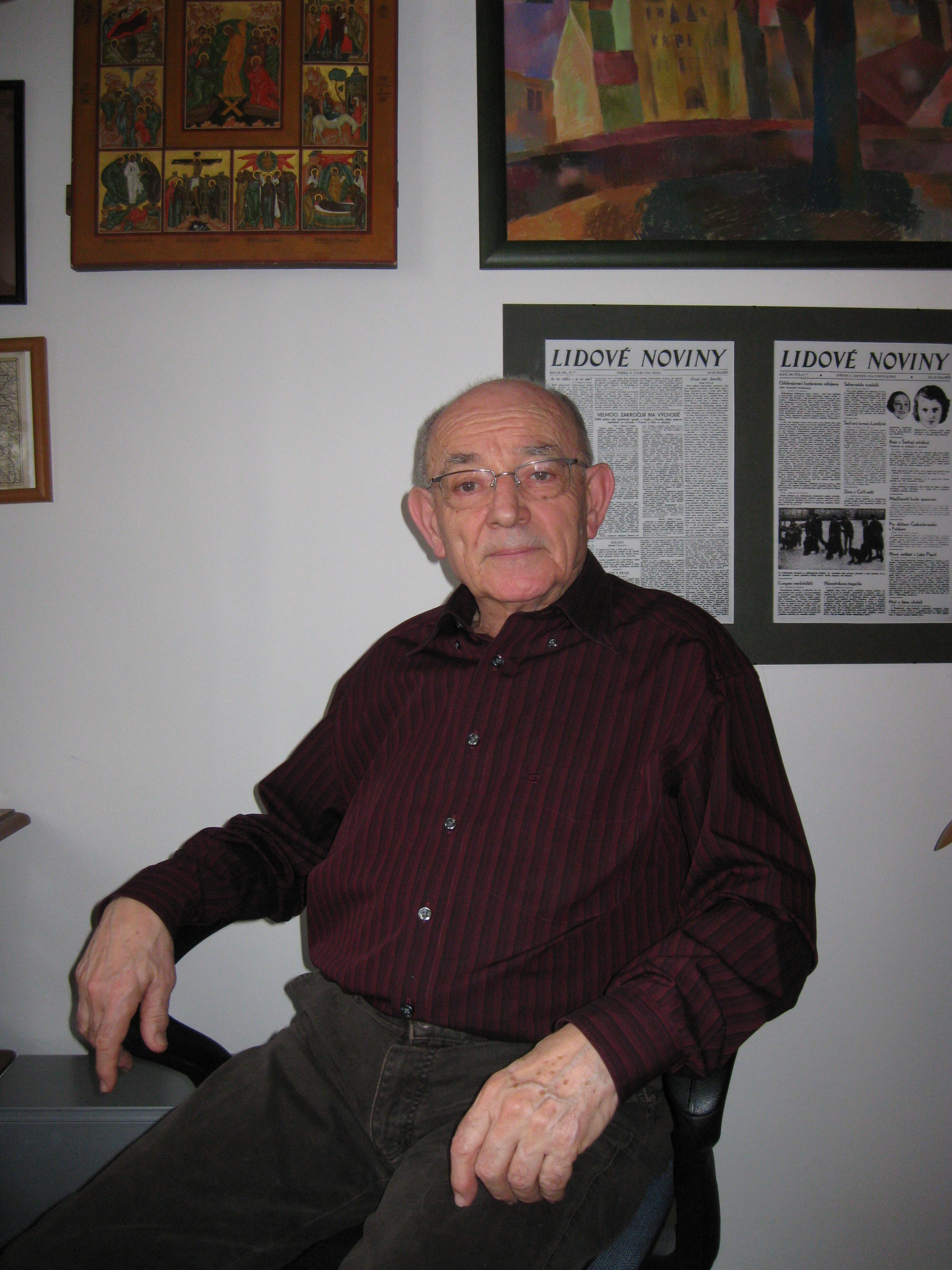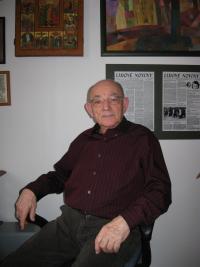I didn´t want to get in situations I had been living through; more or less, my life was just happening to me

Stáhnout obrázek
Luboš Dobrovský, born Hammerschlag, was born on February 3rd of 1932 in Kolín. His father, Ludvík Hammerschlag, of Jewish descent, was an office worker at the Draslovka chemical plant in Kolín. In July 1942, he had been interned in Theresienstadt (Terezín) from where he was transferred to Auschwitz in September 1943. He died in Germany at the end of the war as the train he was transported in had been destroyed in Allied air raid. His mother, Marie Hammerschlagová, moved from Kolín to the village of Ohrada with Luboš and his younger brother, running a small farm to meet the ends. After the war, his mother married Josef Dobrovský, a colonel who fought at both the Western and the Eastern front and came back to Czechoslovakia with the army led by Ludvík Svoboda. He served at the Garrison Command in Kolín and later at the Czechoslovak army´s general staff in Praha. In the school year 1949 – 1950, under his stepfather´s influence, Luboš decided to transfer from gymnasium in Kolín to Jan Žižka of Trocnov Secondary Military School (Vojenské gymnázium Jana Žižky z Trocnova). There he wanted to pass the leaving examination and continue in his studies at a military academy to become an officer. However, shortly before the examination he had been expelled due to his stepfather´s conflict with the communists in the leadership of the army. He took the secondary school leaving exam at gymnasium in Moravská Třebová, and as he hadn´t been admitted to university, he taught Russian and Czech in elementary schools in the country while studying at the faculty of education. From 1953 to 1955, he did his compulsory military service in Vimperk and had experienced disillusionment with conditions in the army. Later on, he graduated in Russian studies and Czech studies at the Faculty of Arts, Charles University (Filozofická fakulta Univerzity Karlovy). From 1958 to 1968, he had been working at the Czechoslovak Radio in Praha (Československý rozhlas), starting his career in external broadcasting department and later joining the editorial staff at the foreign news department led by Milan Weiner as the editor in chief. He had been working as an editor, an analyst and Socialist countries correspondent, participating on the unique, uncensored Commented news (Komentované zpravodajství) broadcast. From 1967 to 1968 he was the Radio´s permanent correspondent in Moscow. After August 1968, he had been working as an editor at Listy and Plamen magazines. After the magazines were discontinued, he had been working as an archivist at the Museum of Czech literature. From 1974 – 1988, he had been employed at the Cleaning National Enterprise (Úklid) as a window cleaner, and in 1989, he had been working as a boiler operator at the Motol University Hospital. At the same time, he was the editor of the Kritický sborník (Critical Review) and Čtverec (Quadrangle) samizdat magazines, he translated materials from Polish and Russian and gave lectures at the underground university. After the Velvet Revolution, he got involved in politics – from December 1989 to January 1990, he had been the Civic Forum (Občanské fórum) spokesman, from January 1990 to June 1990, he served as the Ministry of Foreign Affairs spokesman. From June 1990 to October 1990, he had been part of a team that negotiated the withdrawal of Soviet troops from the country as the Deputy Foreign Minister. In October 1990, he was appointed as the Defense Minister by president Václav Havel and held the post till June 1992. After that, he had been serving as the chief of the Office of the President of the Republic and from 1996 to 200, he was the Czech Ambassador to the Russian Federation. Luboš Dobrovský passed away on January 30th 2020.
